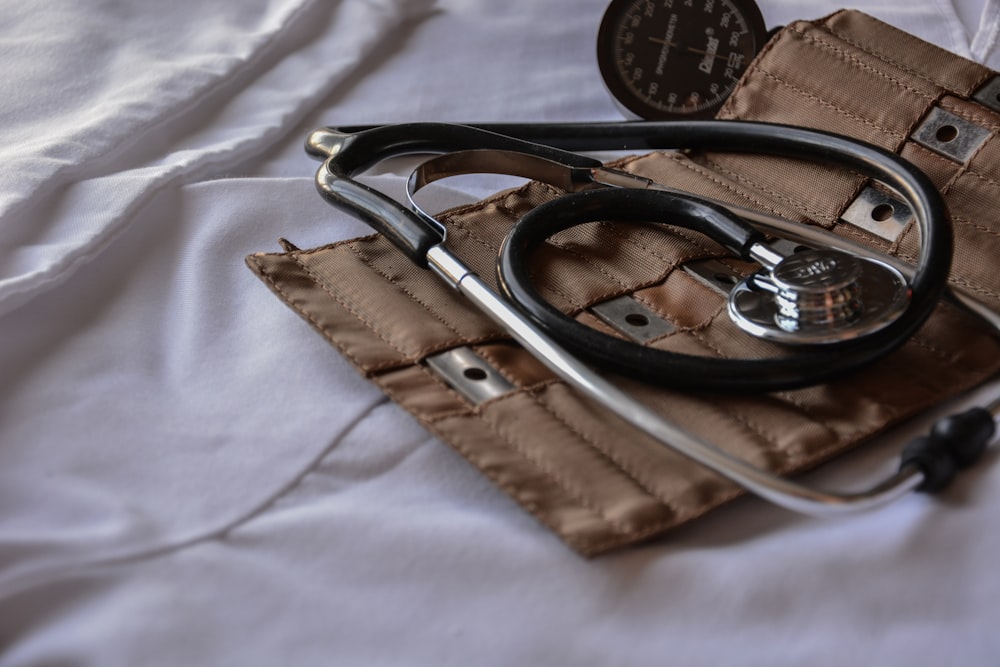If you suffer from sleep apnea, you know what it’s like to wake up in the morning feeling utterly fatigued. But feeling like you don’t have enough energy to get through the day is far from the only negative outcome of untreated sleep apnea. Among the many potential side effects of sleep apnea, one of the most serious is high blood pressure, also known as hypertension. Notably, this often develops into resistant hypertension, where high blood pressure becomes hard to control with medications and other standard treatment options.
Here’s what you need to know about the relationship between sleep apnea and hypertension, as well as what you can do to keep these symptoms in check.
How Sleep Apnea Contributes to Hypertension

Research has found that roughly 50 percent of people with obstructive sleep apnea also have high blood pressure, making them much more likely to develop this condition than the general public. So why is this the case?
During normal sleep, your blood pressure will generally fall or “dip” over the course of the night. However, the interruptions to sleep caused by obstructive sleep apnea also disrupt this process. Instead of remaining at a lower level and allowing your blood vessels to rest, the breathing interruptions caused by sleep apnea cause blood pressure to increase when your airways become blocked. Blood pressure then decreases again after normal breathing is restored.
Part of the reason why blood pressure increases during sleep apnea incidents is because any interruption to breathing will also cause your blood oxygen levels to drop. At the same time, carbon dioxide levels will go up. This affects the heart’s ability to pump blood to the body, and as a result, blood pressure increases to make up for the lack of oxygen.
Poor sleep in general has also been linked to high blood pressure — with both frequent sleep interruptions and getting less than 5 hours of sleep per night cited as risk factors.
Another challenge comes from the fact that obstructive sleep apnea can contribute to other medical conditions that may cause hypertension, such as oxidative stress, metabolic disruptions, and whole-body inflammation.
With all of these factors in play, it should be no surprise that the more severe someone’s sleep apnea, the more likely they are to struggle with hypertension — and particularly hypertension that is resistant to standard treatment methods.
The Value of a CPAP Machine

CPAP machines provide a steady flow of pressurized air throughout the night. This helps prevent breathing obstructions, keeping the body’s airways open all night long. Uninterrupted sleep will prevent the blood pressure spikes that otherwise occur during a sleep apnea incident, and in fact, studies have found that using a CPAP machine can help lower blood pressure. With a properly fitted mask, using a CPAP machine at settings prescribed by a sleep specialist will dramatically improve sleep quality, which in turn, will help you better manage high blood pressure.
However, while a CPAP machine can help mitigate hypertension, it probably isn’t going to be enough to improve your high blood pressure on its own. You will likely need other treatments in addition to a CPAP machine to help get your blood pressure back to a healthy level.
For example, many people rely on ACE inhibitors, beta-blockers, and other medications to control blood pressure levels. By using a CPAP machine to control sleep apnea, you can ensure that these medications will be more effective at managing your condition.
Healthy lifestyle changes can also improve both your blood pressure and sleep apnea. For example, eating a healthy diet and exercising regularly will make it much easier to maintain a healthy weight. Obesity is a key risk factor for both obstructive sleep apnea and hypertension, so shedding some extra pounds through these healthy lifestyle changes can lead to major improvements.
Quitting smoking should also be a top priority. Not only has smoking been linked to high blood pressure and heart disease, but it can also cause irritation and inflammation of your upper airways. This inflammation puts you at greater risk of experiencing nightly sleep apnea events. Quitting smoking can help ease both obstructive sleep apnea and hypertension, while also reducing your risk for serious outcomes like cancer.
Improve Your Sleep and Your Blood Pressure!
Left untreated, obstructive sleep apnea can have a significant influence on your blood pressure, raising it to unhealthy levels that put you at greater risk for more serious medical issues such as heart attack, stroke, metabolic syndrome, and kidney problems. However, by using a CPAP machine to manage your sleep apnea, you can avoid these and other potential negative health outcomes. Better yet, you’ll also be able to enjoy higher quality sleep, night after night.
Of course, getting a CPAP machine to manage your sleep apnea can be expensive if you don’t have health insurance. This is where No Insurance Medical Supplies can help. We offer a wide range of CPAP machines from leading manufacturers like ResMed at discounted prices so you don’t have to break the bank on vital medical equipment. With free shipping on orders over $99 and available financing on purchases of $500 and up, you can get the care you need at a price you can afford.
